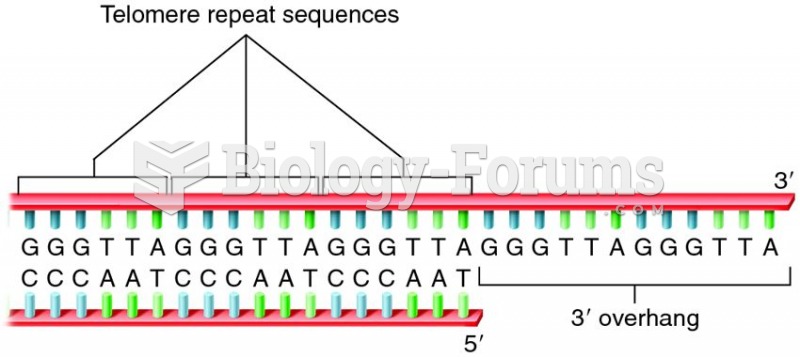|
|
|
Pope Sylvester II tried to introduce Arabic numbers into Europe between the years 999 and 1003, but their use did not catch on for a few more centuries, and Roman numerals continued to be the primary number system.
Cytomegalovirus affects nearly the same amount of newborns every year as Down syndrome.
People about to have surgery must tell their health care providers about all supplements they take.
A cataract is a clouding of the eyes' natural lens. As we age, some clouding of the lens may occur. The first sign of a cataract is usually blurry vision. Although glasses and other visual aids may at first help a person with cataracts, surgery may become inevitable. Cataract surgery is very successful in restoring vision, and it is the most frequently performed surgery in the United States.
More than nineteen million Americans carry the factor V gene that causes blood clots, pulmonary embolism, and heart disease.







